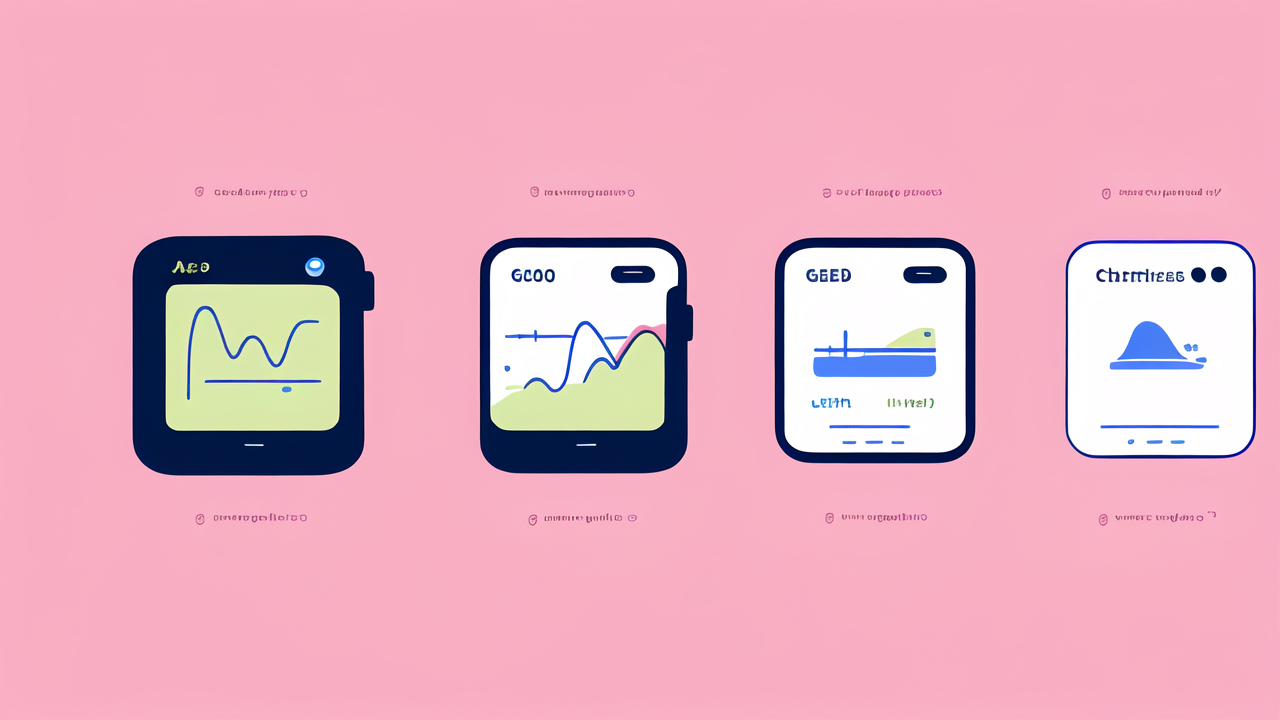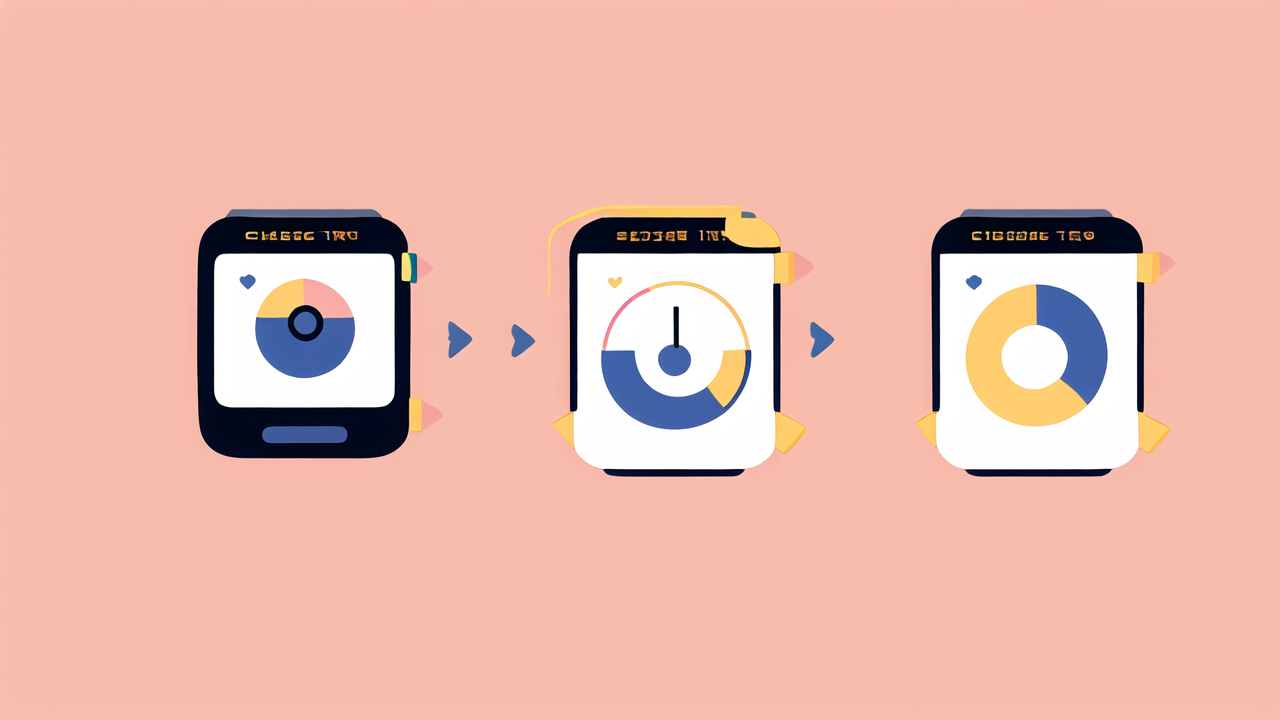Understanding the Difference: Pulse Watch vs. Smart Smart Watch
The Evolution of Wearable Technology: From Pulse Watches to Smart Smart Watches
Wearable tech has come a long way. It started with simple pulse watches. These devices focused on one thing: tracking your heart rate. They were easy to use and gave basic health info.

As tech advanced, we saw the rise of smart watches. These devices do much more than just track pulse. They offer a wide range of features. From step counting to sleep tracking, they cover many health aspects.
The journey from pulse watches to smart watches shows how our health needs have changed. We now want more data about our bodies. Smart watches meet this need with their advanced sensors and apps.
Key Features of Pulse Watches and Smart Smart Watches
Pulse watches have a clear focus. They measure your heart rate. This is useful for exercise and general health awareness. They often have a simple display. It shows your current heart rate and sometimes your exercise zone.
Smart watches, on the other hand, are more complex. They track heart rate, but also steps, calories, and sleep. Many can monitor blood oxygen levels and stress. They have color screens that show detailed health data.
Smart watches often include GPS for tracking runs or bike rides. They can also receive notifications from your phone. Some even allow you to make calls or send texts right from your wrist.
How Pulse Watches and Smart Smart Watches Approach Health Monitoring
Pulse watches take a straightforward approach to health. They focus on your heart rate. This can help you stay in the right exercise zone. It can also alert you to any unusual heart patterns.
Smart watches offer a more holistic view of health. They combine heart rate data with other metrics. This includes steps, sleep quality, and even stress levels. Some can even detect falls or irregular heart rhythms.
Smart watches often link to health apps on your phone. This allows for deeper analysis of your health data. You can track trends over time and set health goals.
Pulse Watch: The Simple Choice for Basic Health Tracking
The Benefits of a Pulse Watch for Heart Health Awareness
Pulse watches are great for heart health awareness. They give you real-time heart rate data. This is useful during exercise and throughout the day. Knowing your heart rate can help you exercise safely and effectively.

These watches often have exercise modes. They can show if you're in a fat-burning or cardio zone. This helps you tailor your workouts to your fitness goals. Some pulse watches can also track resting heart rate.
For those with heart concerns, a pulse watch can be a helpful tool. It can alert you to unusually high or low heart rates. This information can be valuable to share with your doctor.
Daily Use: How a Pulse Watch Can Integrate into Your Lifestyle
Pulse watches are simple to use in daily life. They're often lightweight and comfortable to wear all day. You don't need to charge them as often as smart watches. This means less hassle in your daily routine.
Many people wear pulse watches during exercise and throughout the day. They can help you understand how different activities affect your heart rate. This includes not just exercise, but also stress or excitement.
Some pulse watches can sync data to your phone. This lets you keep a log of your heart rate over time. It's a simple way to track your heart health without overwhelming you with data.
Pulse Watch vs. Smart Smart Watch: Cost and Battery Life Considerations
Pulse watches are often more affordable than smart watches. They have fewer features, which keeps the price down. This makes them a good choice for those on a budget. Or for those who only want heart rate tracking.
Battery life is another big advantage of pulse watches. They can often last weeks or even months on a single charge. This is because they have simpler displays and fewer power-hungry features.
Smart watches, while feature-rich, often need charging every day or two. They also tend to be more expensive. The extra cost comes from their advanced sensors and smart features.
Smart Smart Watches: The Advanced Tool for Health Enthusiasts
Innovative Features of Smart Smart Watches That Enhance Health Tracking
Smart watches offer a wide range of health tracking features. Many can monitor your blood oxygen levels. This is useful for overall health and for those with respiratory issues. Some can even take ECG readings to check for heart rhythm problems.

Advanced sleep tracking is another key feature. Smart watches can analyze your sleep stages. They track light sleep, deep sleep, and REM sleep. This data can help you improve your sleep quality.
Stress tracking is becoming common in smart watches. They use heart rate variability to gauge stress levels. Some offer guided breathing exercises to help manage stress.
Smart Smart Watches and the Ecosystem of Health Apps
Smart watches work with a variety of health apps. These apps can give you detailed insights into your health data. They often show trends over time and offer personalized health tips.
Many smart watches can track your workouts automatically. They can detect when you start running, cycling, or swimming. This makes it easy to keep a log of all your activities.
Some health apps let you set goals and compete with friends. This can be motivating for those trying to improve their fitness. You can also often share your data with your doctor for better health management.
Comparing Pulse Watches and Smart Smart Watches for Comprehensive Health Monitoring
While pulse watches focus on heart rate, smart watches offer a more complete health picture. They combine heart rate data with activity levels, sleep patterns, and more. This gives a fuller view of your overall health.
Smart watches often have more accurate sensors than basic pulse watches. They can give more detailed and reliable health data. This is especially true for advanced metrics like blood oxygen or ECG.
However, the simplicity of pulse watches can be an advantage. They're easier to use and understand. For some, especially older adults, this simplicity might be preferable to the complexity of a smart watch.
In the end, the choice between a pulse watch and a smart watch depends on your needs. If you want basic heart rate tracking, a pulse watch might be enough. But for comprehensive health monitoring, a smart watch offers more features and insights.




Leave a comment
This site is protected by hCaptcha and the hCaptcha Privacy Policy and Terms of Service apply.